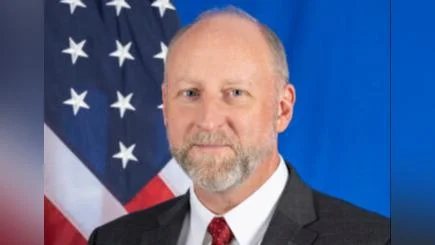The United States has voiced its concerns about the ongoing political and humanitarian crisis in Venezuela, calling attention to what it describes as a pattern of repression and electoral fraud by the Maduro regime. In remarks delivered at a regional council meeting, U.S. officials thanked Commissioner de Mees for her leadership on Venezuelan issues and acknowledged Canada’s role in elevating the discussion at a pivotal time.
"Venezuela remains one of the most urgent challenges to human dignity, democratic governance, and regional security in our hemisphere," the statement read. According to U.S. officials, Secretary Rubio described the Maduro regime as "an enemy of humanity." The remarks noted that for over ten years, the Venezuelan government has pursued policies that include repression, electoral manipulation, and consolidating authoritarian control. These actions have reportedly resulted in economic collapse and forced millions of Venezuelans to leave their country.
Referring specifically to elections held on May 25, 2025, U.S. representatives called them "neither free nor fair," stating that authorities manipulated the process by controlling electoral bodies, silencing independent media, and suppressing opposition voices. The statement also criticized an attempt during these elections to elect representatives claiming authority over Guyana’s Essequibo region—a move rejected by the United States as illegal and destabilizing for the region.
The July 27 municipal elections were also condemned as lacking transparency or accountability. The National Electoral Council aligned with Maduro was accused of failing to release detailed election results at local levels.
The use of arbitrary detention was highlighted as another tool used by Venezuelan authorities. "According to the Inter-American Commission on Human Rights, over 800 political prisoners remain in custody in Venezuela," officials stated. The Commission has previously reported widespread use of practices such as enforced disappearances and criminalization of peaceful protest: “The Venezuelan state continues to repress, criminalize, and silence dissent through institutionalized violence.”
U.S. officials expressed concern not only for those detained but also for their families: "Behind every political prisoner is a family living in fear... behind every child crossing a border is a country they no longer recognize as home."
The call for action included demands for immediate release of all arbitrarily detained individuals—both Venezuelans and foreign nationals—and noted that until last month’s release of 10 Americans from custody in Venezuela, more U.S. citizens were wrongfully detained there than anywhere else globally.
Support was expressed for international efforts such as Canada’s Declaration Against Arbitrary Detention in State-to-State Relations—which now counts 82 signatories—arguing that ignoring fraudulent elections or hostage diplomacy risks setting dangerous precedents.
Citing Deputy Secretary Christopher Landau's remarks at a June assembly—“The opposition not only won overwhelmingly—they had the actas to prove it. The regime didn’t even bother to dispute the evidence of fraud”—the statement stressed impunity surrounding recent events.
Officials concluded by asserting that all countries are affected by Venezuela’s crisis through impacts on asylum systems and economic stability across borders. They urged collective action: rejection of recent Venezuelan elections’ legitimacy; condemnation of territorial claims against Guyana; support for releasing detainees; and upholding regional human rights mechanisms.
"The United States is not neutral in the face of tyranny," they stated. "We stand with the Venezuelan people—not just in words, but in policy, in principle, and in purpose."

